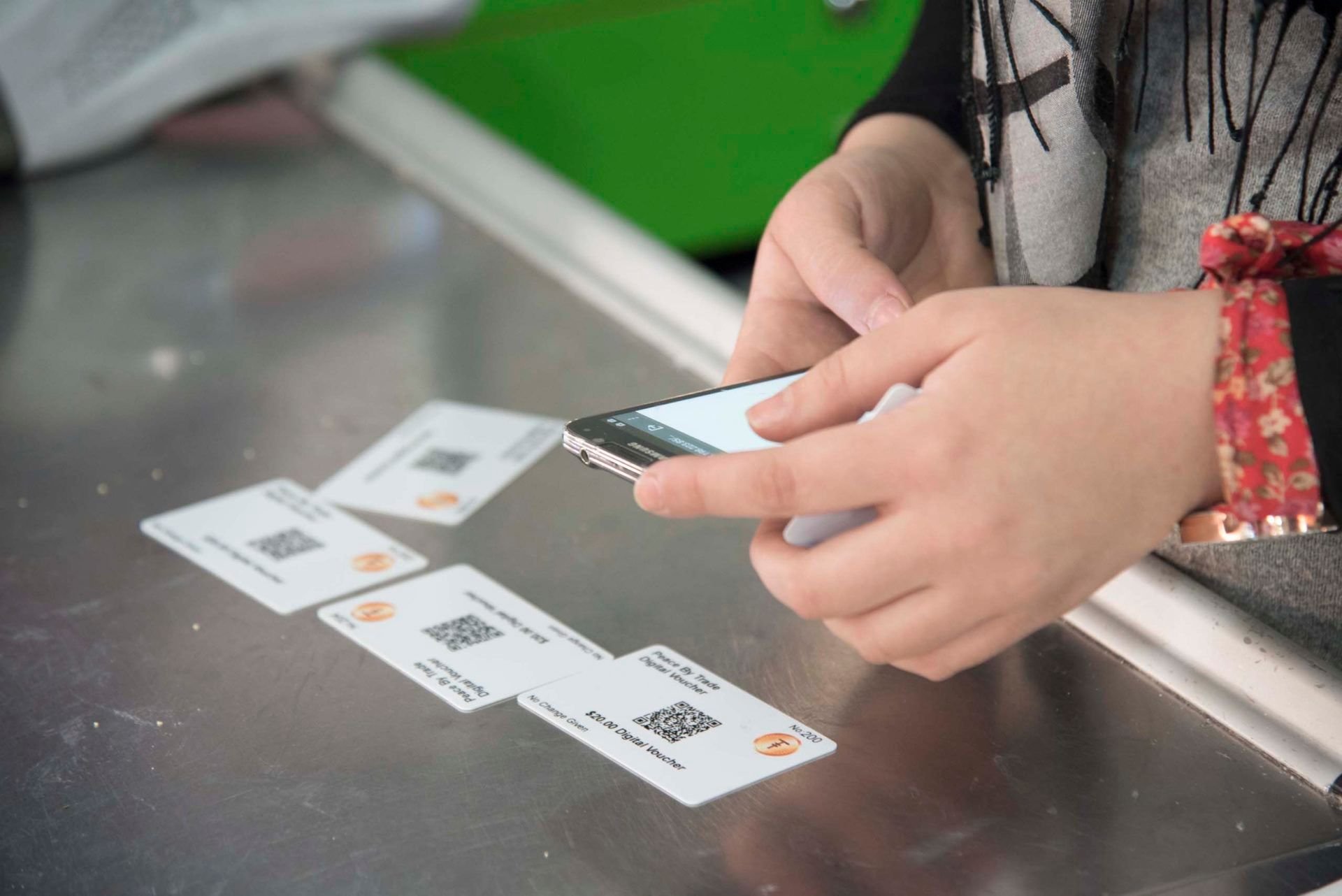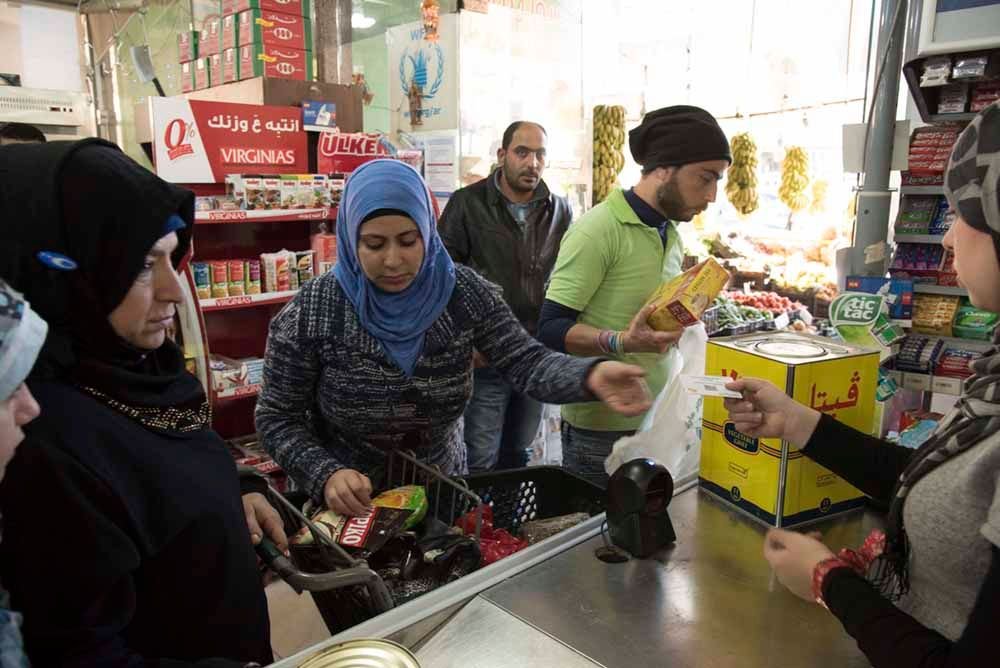With my background in the humanitarian field, I'm interested in how blockchain technology might be used to make the world a better place. This post represents my first "review" of start-ups that focus on social good, specifically related to humanitarian action.
Perhaps not as sexy as the latest crypto coin review or ICO hyping you'll see on YouTube or DTube. But I'd like to shed some light on groups who aim to use emerging blockchain technology to make the world a better place.

An important distinction: fundraising for a one-off cause or event is relatively easy and there are tons of non-blockchain platforms that already exist. In my mind, this falls into the charity category. I'm looking past merely short term or event specific fundraising to highlight outfits that are looking to bring significant change to the humanitarian system overall.
With that as background, let's dive in.
Today I'd like to highlight AID:Tech.
.png)
The Problem
AID:Tech is a for profit Irish startup which aims to tackle two major issues: corruption/fraud in humanitarian aid and the vast number of individuals on the planet who lack a legal identity.
Corruption/fraud: AID:Tech references a statement in 2011 from then United Nations Secretary-General Ban Ki-moon who estimated that “corruption prevented 30 percent of all development assistance from reaching its final destination.” While I believe this number is severely inflated (there are no reliable figures on how much aid is lost to corruption as it's notoriously hard to track - estimates are all over the place, from 2.5% to 70%) most will admit that corruption and fraud are in fact an issue. While there are more anti-fraud measures in place than ever before, there is much the international community could do to clamp down on corruption. (Counterpoint: some have argued that there has been an over emphasis on preventing corruption at the expense of positive humanitarian or development outcomes)
Lack of Legal Identity: The other major problem that AID:Tech is trying to address is the fact that there is a massive amount of people alive on the planet today that can not prove their identity. Although AID:Tech again exaggerates the problem (the number of people AID:Tech claim do not have means to prove their identity - 2.4 billion - is based on a 2014 estimate. The latest 2017 data from the World Bank estimate a figure closer to 1.1 billion people) this issue still affects 1 out of every 7 people on earth. Imagine the difficulty accessing health or financial services after fleeing a war zone with no time to collect your documents or having everything you own swept away by a natural disaster leaving you without a way to prove your identity. Imagine the difficulty in accessing educational opportunities or other social services. Imagine trying to travel or enter another country as a refugee.
The Solution
AID:Tech aims to use blockchain technology to make aid more transparent and efficient, tracking donated funds at every point in the journey in real time. In 2015, they worked with the Irish Red Cross to deliver support to Syrian refugees in Lebanon using their core technology. AID:Tech claims this was the first time that international aid was delivered using blockchain technology.
Because the distribution of aid was tied to an identity card provided to the beneficiaries, AID:Tech effectively hit two birds with one stone: they issued identity cards to the identity-less which were immediately used to receive aid. Both sets of information (identity and aid distribution details) were stored immutably on the blockchain.
The pilot in Lebanon appeared to go extremely well. $10,000 was given to 100 Syrian families to use at a local grocery store. As the beneficiaries purchased items with vouchers, every transaction was tracked and recorded on the blockchain in real time. They tested the system by creating twenty fake vouchers, all of which failed.

If the system is able to handle up-scaling, it would have massive implications in terms of transparency and efficiency of aid delivery (not to mention making corruption more difficult) all while supporting the identity establishment process.
Partnerships and Awards
Since 2015, AID:Tech has been busy building partnerships to help them scale up: International Federation of Red Cross and Red Crescent Societies, PricewaterhouseCoopers, UN Development Program, and The Rockefeller Foundation to name a few.
They've also been busy winning an impressive amount of awards and did especially well last year: IBM's #1 Global Startup (2017), Citi Tech4Integrity Global Game Changer Award (2017), Startup Europe Award National Winner in Social Category (2017), and UN Global Compact Sustainable Development Goals Pioneer for Blockchain Technology (2017).

The Bottom Line
AID:Tech has the potential to make a large and very positive impact in how aid is delivered while simultaneously supporting the identity-less. They've established some impressive partnerships, which will be critical to if they are to achieve scale.
I would advise them to do their due diligence when it comes to stating the problem - they need to be careful about overstating the need when it's not really necessary - the needs are massive as they are and don't need to be exaggerated!
Other than that, AID:Tech appear to be a solid startup, staffed with people who are motivated by a desire to make a positive impact on the world - with a specific focus on extremely vulnerable populations. They're doing some very exciting work towards solving some very real problems in the humanitarian sector. With the latest string of awards and partnerships they seem to have a bit of momentum which is cause for optimism. It seems like quite an exciting time for AID:Tech - I will be following their progress with great interest going forward.

